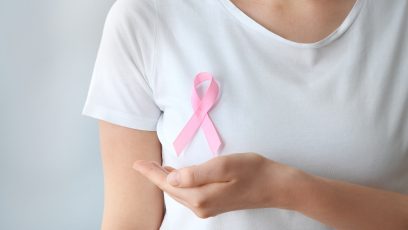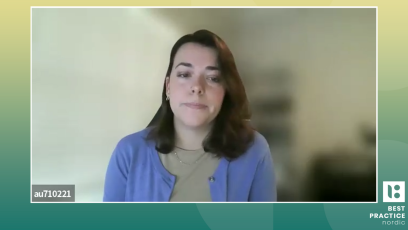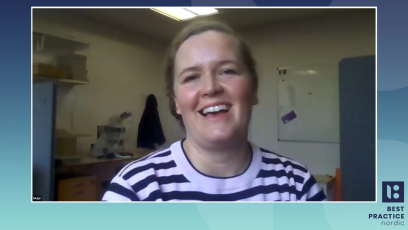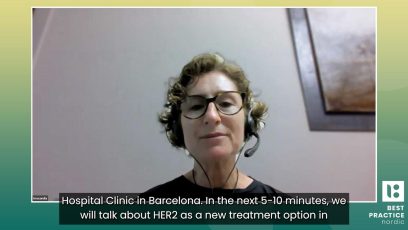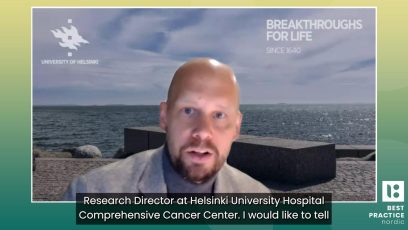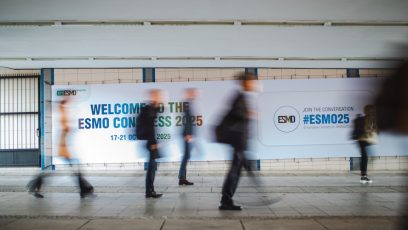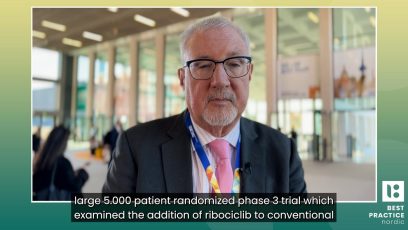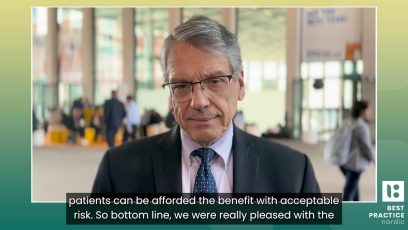Resources are Limited in Iceland Regarding Research and Patient Management for Breast Cancer—A Closer Nordic Collaboration Would Therefore be Highly Valuable
Only three oncologists at Landspitali University Hospital in Reykjavik work with breast cancer. With 260 new breast cancer cases annually, this creates limited resources, especially for participation in research.
BestPractice Nordic interviewed Olöf Bjarnadóttir, MD, Ph.D., specializing in oncology at the Oncological Department, Landspitali University Hospital, Reykjavik, Iceland, about the opportunities and challenges related to breast cancer research and treatment in Iceland.
As the smallest country in the Nordic region, Iceland faces fundamental challenges yet shares many challenges and opportunities with the other Nordic countries. A closer Nordic collaboration would enhance research and patient treatment for breast cancer in Iceland and other Nordic countries.
- Could you initially describe the fundamental conditions regarding breast cancer in Iceland?
I can begin by describing the basic conditions concerning breast cancer in Iceland. Annually, there are approximately 260 new breast cancer cases in Iceland. Of the eight medical oncologists working at Landspitali University Hospital in Reykjavik, only three of them treat breast cancer, resulting in a significant workload in the clinic.
There are also oncologists treating patients in Akureyri in northern Iceland, and two in Selfoss, southern Iceland, but the treatment decisions of new breast cancer patients and the multidisciplinary team meetings (MTMs) take place at Landspitali University Hospital in Reykjavik.
- How do the limited resources affect your opportunities for research and the implementation of clinical studies?
This is a major challenge in our clinical practice, as we are too few. This results in a heavy clinical workload, impacting our ability to find the time and resources to engage in research to the extent we want.
We have only a small research department that serves the entire hospital, and it does not provide the necessary support for conducting clinical research. We have had some clinical trials in Iceland, but in the four and a half years I have worked at the department, we have not had any new clinical breast cancer trials in collaboration with major pharmaceutical companies.
- Have you had the opportunity to collaborate in the past?
Yes, we did in the past, but interest from companies has significantly decreased, likely because we are a small country with 400,000 inhabitants only, equivalent to a mid-sized city in Sweden. We have difficulties to include enough patients to participate in clinical trials.
However, my colleagues who work with lung cancer have participated in larger clinical trials. It is possible to establish collaborations, but in recent years we have not succeeded in participating in any new clinical breast cancer trials.
- Do you have opportunities for collaboration on smaller research projects?
We do have some ongoing research projects. We collaborate with an Icelandic company, Sidekick Health, which has developed an app aimed at improving the quality of life for cancer patients. We have completed some projects with them and will soon initiate a new clinical trial examining whether using this app can help women undergoing endocrine therapy for breast cancer to reduce side effects and improve treatment adherence.
- What are the possibilities in Iceland for using the latest approved drugs, such as those approved by the EMA?
We use the latest treatments but do not get to use them immediately. We pay attention to the EMA approval to discover what we want to get approved in Iceland. We can also obtain support to use a drug if, for example, two other Nordic countries are already using it. In recent years Iceland has also increased collaboration with other Nordic countries, especially Norway regarding access and pricing, but as a small country, Iceland is not a priority for major pharmaceutical companies.
- What consequences does this have for your ability to choose optimal treatments for your patients?
Sometimes, a new drug is not registered in Iceland, so we have to source it from abroad, making it more expensive. An example of this is the treatment with abemaciclib, a CDK4/6 inhibitor used as adjuvant therapy for high-risk patients with hormone receptor-positive breast cancer. Abemaciclib is not registered in Iceland, so we have to procure it through alternative methods. We are trying to have the drug registered, but so far without success.
Although we do not have a national breast cancer guidelines like other Nordic countries, we often use Swedish guidelines as well as ESMO guidelines. We plan to gain more insight into the Swedish process eventually.
- What value do you think a closer Nordic collaboration on breast cancer would have for you, your colleagues, and, most importantly, for the patients?
A closer Nordic collaboration would be a very significant opportunity for us. Such collaboration would enhance our opportunities to participate in clinical, academic, and researcher-initiated trials.
Regarding the use of datasets and databases, strengthened collaboration would also benefit a small country like Iceland by allowing us to work with registries as a united entity rather than as five separate countries. Of course, challenges vary from country to country, but many challenges are similar.
By sharing and leveraging each other’s experiences, we can improve the diagnosis and treatment of breast cancer, both now and in the future. That is a goal that unites us all.
Are you a breast cancer specialist?
Join the Nordic Breast Cancer Network. Gain exclusive access to the latest insights and expert updates and connect with a network of leading Nordic specialists.
Join the networkBrænder du for at skrive?
Vil du gerne dele din forskning eller dine kliniske erfaringer med dine kollegaer inden for netop dit speciale? Har du en ide til en artikel, som du gerne vil udgive hos os? Send redaktionen en mail på redaktion@bpno.dk
Send mail til redaktionen
